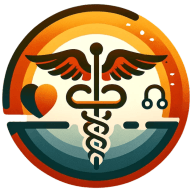7 Lessons in Communication for Effective Healthcare Leadership
Effective communication lies at the heart of successful healthcare leadership. This article delves into crucial communication lessons, drawing from the wisdom of seasoned healthcare experts. From fostering clarity and active listening to embracing empathy and technological advancements, these insights offer a roadmap for leaders to navigate the complex landscape of healthcare communication.
- Clarity and Precision Drive Effective Leadership
- Active Listening Enhances Medical Director's Effectiveness
- Tailor Communication to Diverse Healthcare Stakeholders
- Transparency Builds Trust in Healthcare Leadership
- Embrace Technology for Efficient Healthcare Communication
- Empathy: A Crucial Skill for Healthcare Leaders
- Foster Open Dialogue to Spur Healthcare Innovation
Clarity and Precision Drive Effective Leadership
I've learned that it is important to be very clear and precise. This has made me more direct and goal-oriented in my communications with my team.

Active Listening Enhances Medical Director's Effectiveness
As a medical director, one crucial lesson I've learned about communication is the power of active listening. In this role, being a bridge between various stakeholders such as doctors, nurses, administrative staff, and patients requires a profound understanding of each group's unique concerns and needs. Active listening has not only helped me gather accurate information but also shown empathy, which in turn, fosters a more open and trusting environment.
This lesson has significantly influenced my communication style, making me more patient and attentive during interactions. I'm more deliberate in ensuring that when someone is speaking, I'm fully present, acknowledging their points before responding. This approach has enhanced my ability to make informed decisions and communicate effectively, maintaining clarity and focus on the collective goals of healthcare delivery. Overall, embracing active listening has been transformative, strengthening relationships and improving collaboration across the board.

Tailor Communication to Diverse Healthcare Stakeholders
Effective healthcare leaders understand the importance of tailoring their communication to various stakeholders. Doctors, nurses, administrators, and patients all have different needs and perspectives. By adapting the message to each group, leaders ensure that information is relevant and easily understood.
This approach helps build trust and improves overall communication within the healthcare system. Clear, targeted messaging can lead to better patient outcomes and a more efficient organization. Healthcare leaders should strive to develop their ability to adjust their communication style for different audiences.
Transparency Builds Trust in Healthcare Leadership
Transparency is a cornerstone of strong leadership in healthcare. When leaders are open and honest about organizational decisions, challenges, and successes, they foster trust among staff and patients. Transparent communication helps prevent misunderstandings and rumors that can damage morale.
It also demonstrates a commitment to ethical practices and accountability. In times of crisis or change, transparency becomes even more crucial for maintaining confidence in leadership. Healthcare leaders should prioritize creating a culture of openness and transparency within their organizations.
Embrace Technology for Efficient Healthcare Communication
Modern healthcare leadership requires embracing technology for effective communication. Digital platforms can quickly disseminate important information to large groups of staff or patients. Tools like secure messaging apps, telemedicine platforms, and electronic health records improve coordination and reduce errors.
Technology also allows for real-time updates and feedback, enabling leaders to address issues promptly. However, it's important to balance digital communication with face-to-face interactions to maintain a personal touch. Healthcare leaders should explore and implement technological solutions that enhance their communication strategies.
Empathy: A Crucial Skill for Healthcare Leaders
Empathy is a vital skill for healthcare leaders in all their professional interactions. By understanding and sharing the feelings of others, leaders can create a more supportive and positive work environment. Empathetic communication helps in resolving conflicts, improving patient care, and boosting staff morale.
It also enables leaders to make more informed decisions by considering multiple perspectives. Developing empathy requires active listening and a genuine interest in others' experiences. Healthcare leaders should make a conscious effort to cultivate empathy in their daily communications.
Foster Open Dialogue to Spur Healthcare Innovation
Innovation in healthcare often stems from open and honest dialogue. By encouraging staff at all levels to share ideas and concerns, leaders can tap into a wealth of knowledge and creativity. This approach fosters a culture of continuous improvement and problem-solving.
Open dialogue also helps identify potential issues before they become major problems. It's important to create safe spaces for communication where employees feel comfortable expressing their thoughts without fear of reprisal. Healthcare leaders should actively promote and facilitate open discussions to drive innovation and excellence in their organizations.

